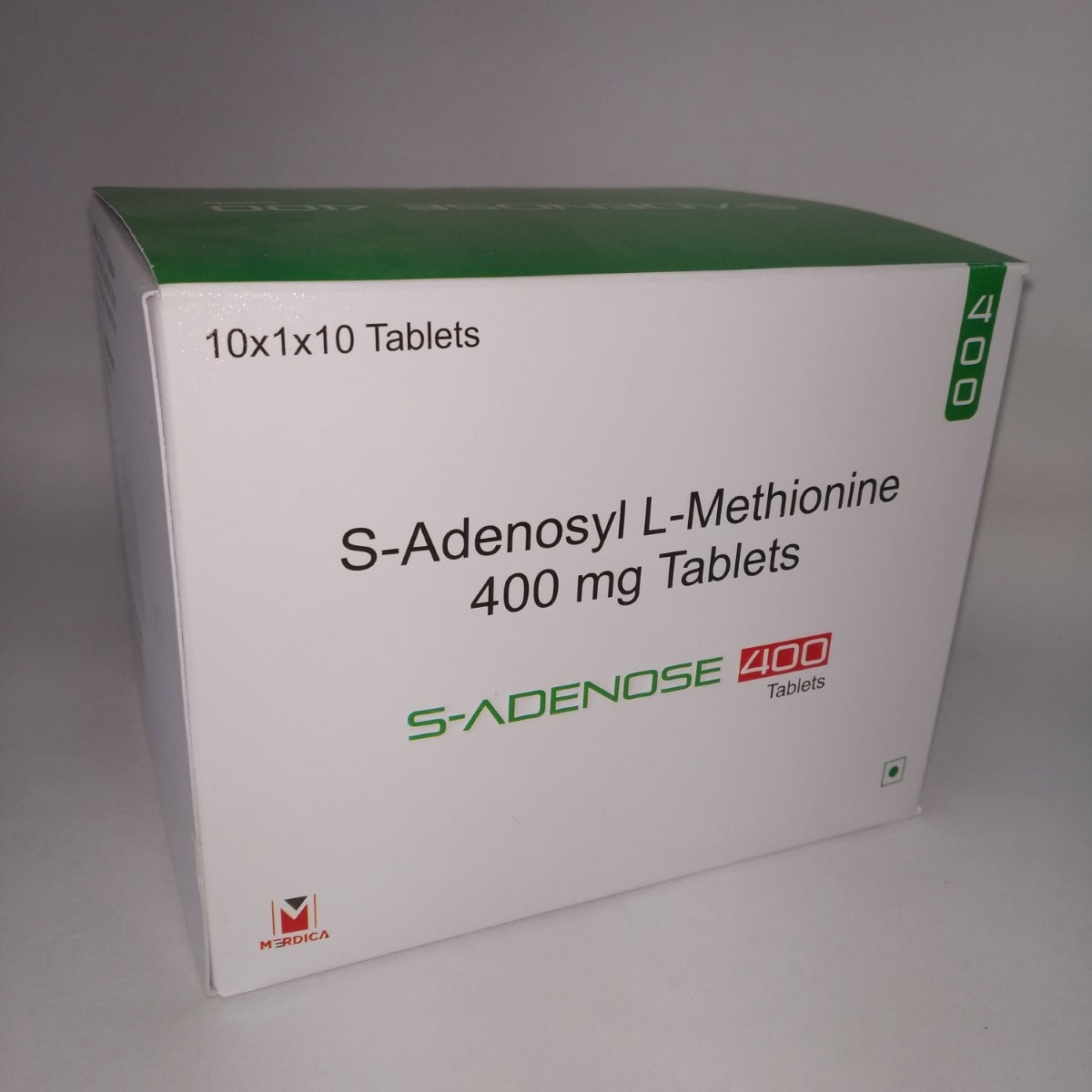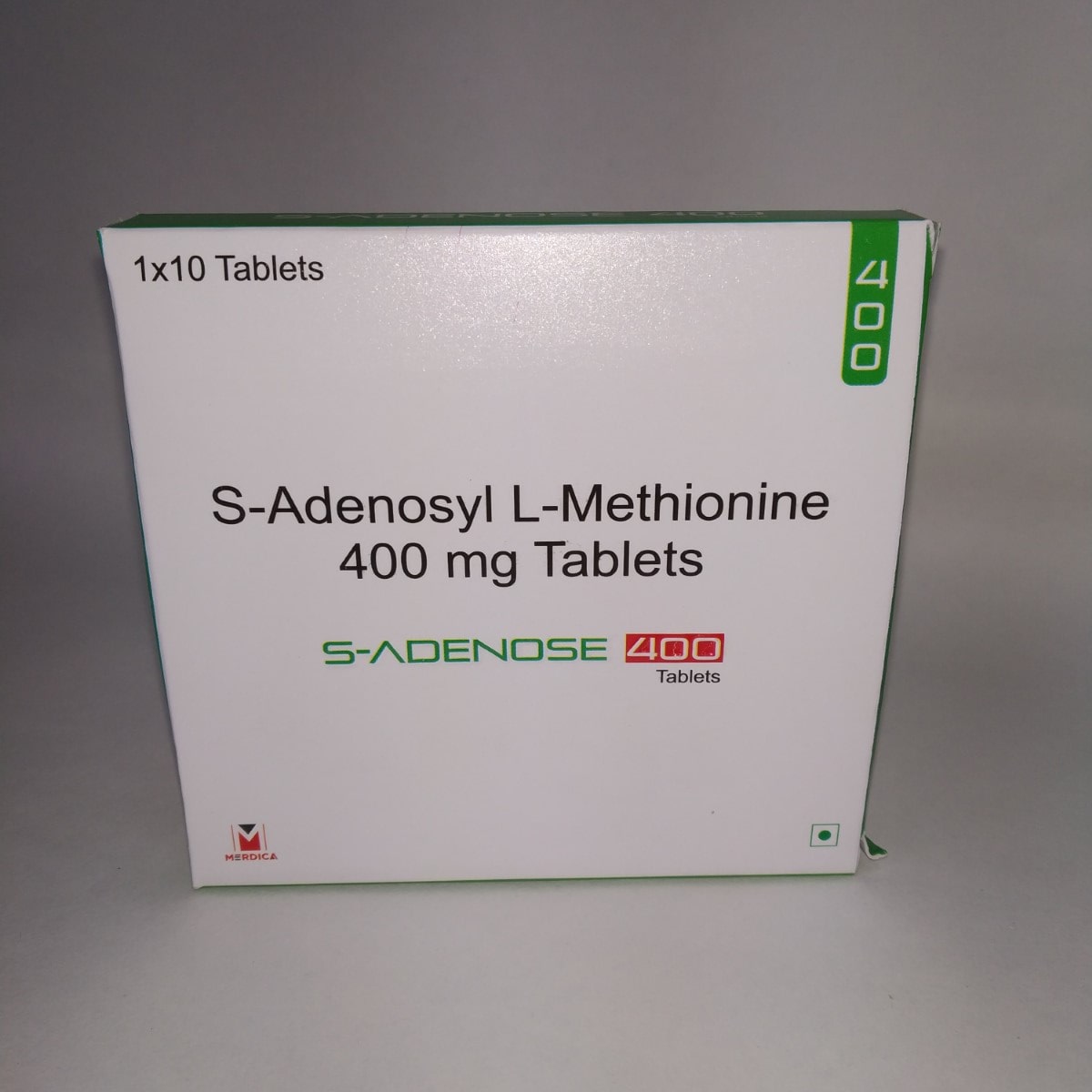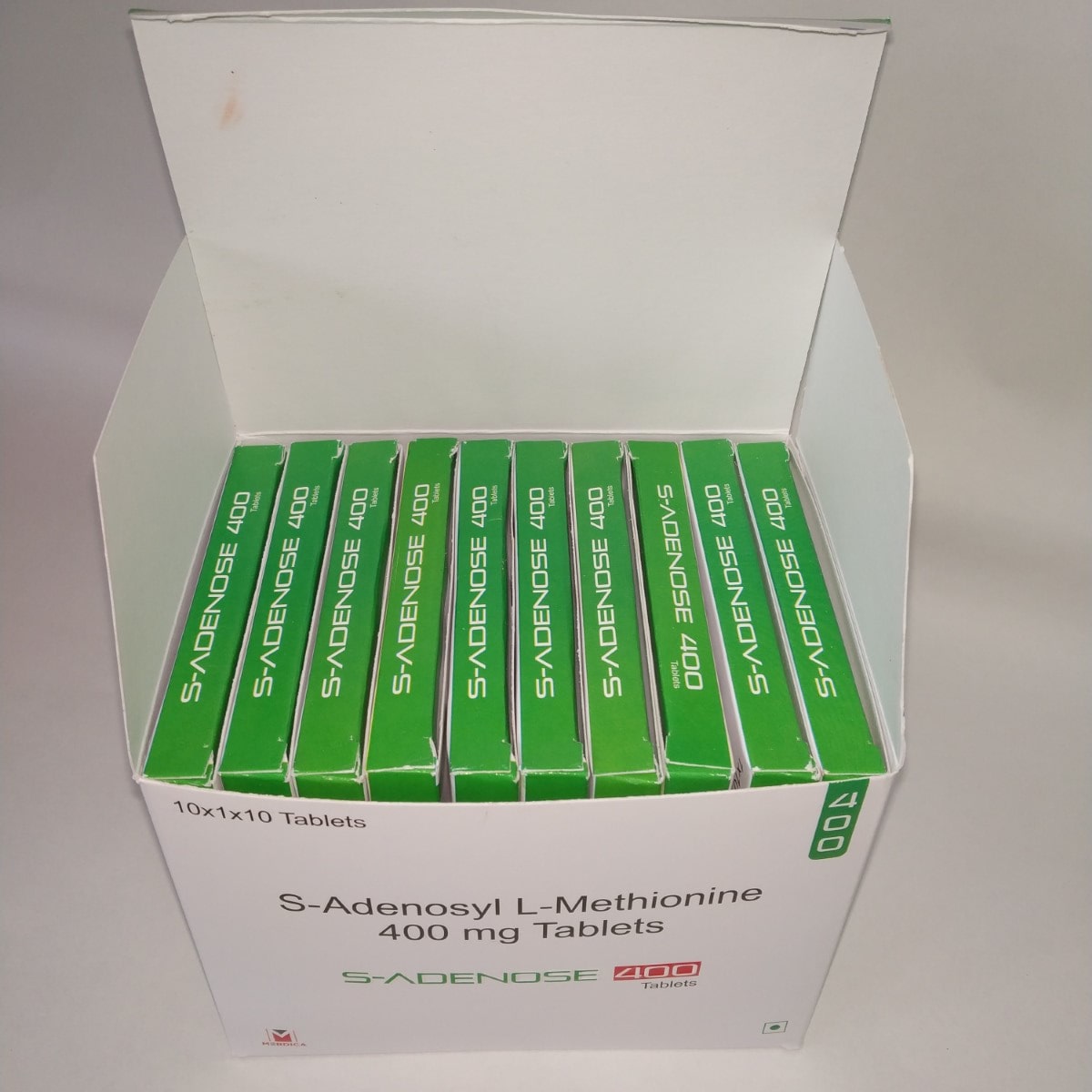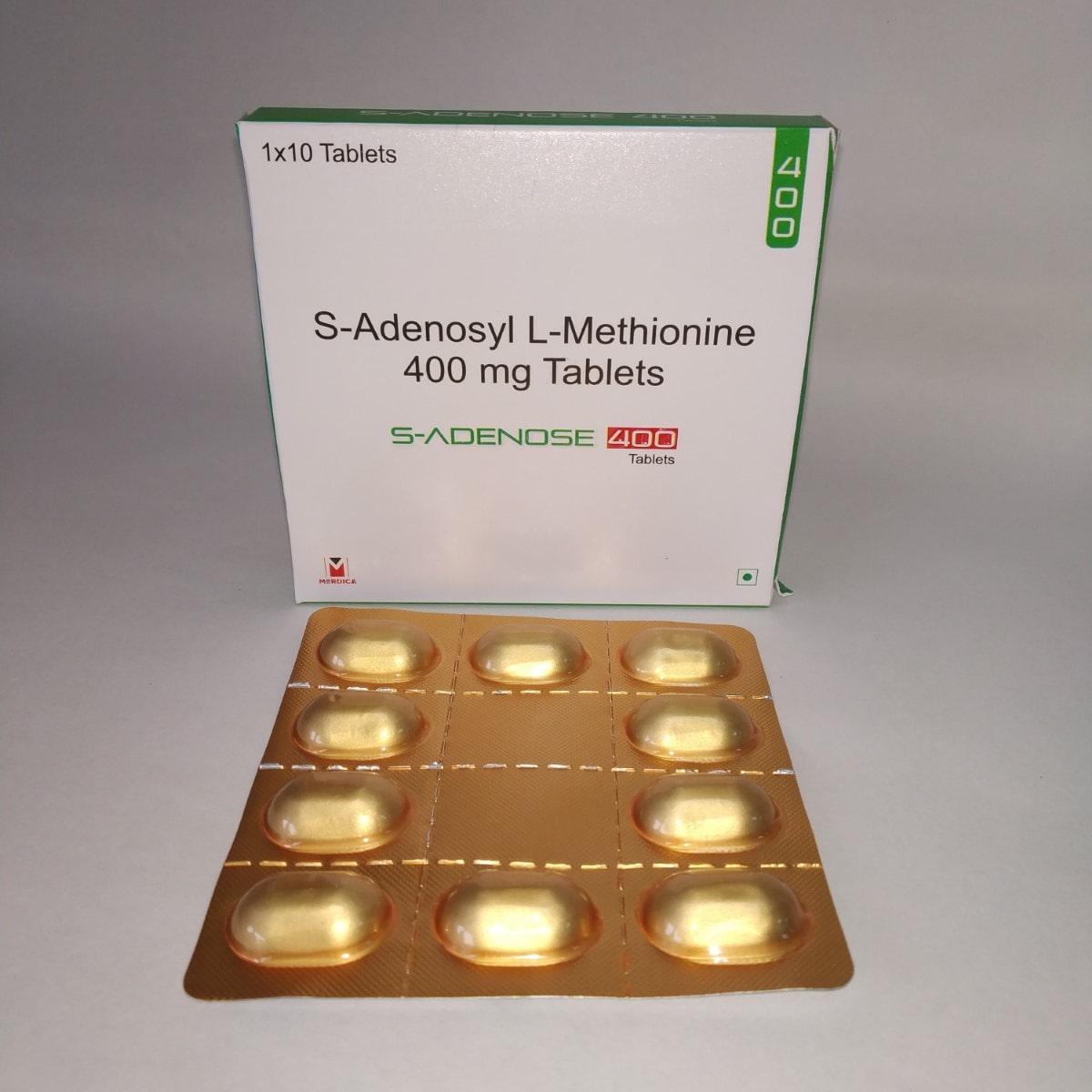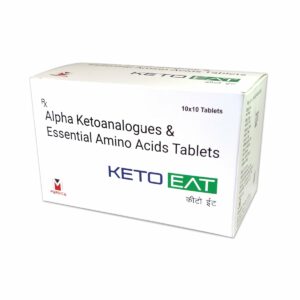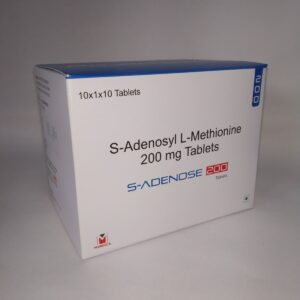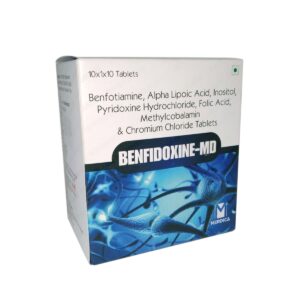S-ADENOSE 200 is a Health Supplement Tablet that contains S-Adenosyl-L-methionine (400 mg). It can help in Depression, Osteoarthritis, and Liver Diseases.
S-Adenosyl-L-methionine was discovered in the early 1950s. It’s made in the body from methionine, an amino acid found in foods. It has been found to regulate key functions in living cells.
Abnormal levels of S-Adenosyl-L-methionine in the body have been reported in liver diseases and depression. This prompted researchers to investigate whether S-Adenosyl-L-methionine might be helpful in treating these conditions. The idea that S-Adenosyl-L-methionine might be helpful for osteoarthritis came from studies of S-Adenosyl-L-methionine for depression. Some of the participants in the depression studies who also had osteoarthritis said their joint symptoms improved when they took S-Adenosyl-L-methionine.
What the Science Says About the Effectiveness of S-Adenosyl-L-methionine
S-Adenosyl-L-methionine has been investigated most extensively for depression, osteoarthritis, and liver diseases. For all three conditions, research has not conclusively shown that S-Adenosyl-L-methionine is helpful.
Depression
Overall, the evidence that oral S-Adenosyl-L-methionine may be helpful for depression is not conclusive.
At least 40 studies in people have evaluated S-Adenosyl-L-methionine for depression, and many of them showed evidence of beneficial effects. However, most of these trials lasted only a few weeks, included a small number of participants, and were not of the highest scientific quality. Also, some studies used injected S-Adenosyl-L-methionine rather than an oral form (taken by mouth).
Osteoarthritis
The results of research on S-Adenosyl-L-methionine for osteoarthritis are mixed.
Studies in people have compared oral S-Adenosyl-L-methionine with nonsteroidal anti-inflammatory drugs (NSAIDs; medicines used to relieve osteoarthritis pain) or placebos (inactive substances) in patients with osteoarthritis of the knee or hip.
- In general, studies that compared S-Adenosyl-L-methionine with NSAIDs showed that each had similar pain relief and improvement in joint function, with fewer side effects in the patients taking S-Adenosyl-L-methionine.
- The smaller number of studies that compared S-Adenosyl-L-methionine with placebo did not consistently show S-Adenosyl-L-methionine to be beneficial.
Liver Diseases
There’s some evidence linking decreased levels of S-Adenosyl-L-methionine in the body with the development of liver diseases, and animal studies have suggested that S-Adenosyl-L-methionine may be of value for liver problems. However, whether S-Adenosyl-L-methionine is beneficial for liver diseases in people has not been established.
- Cholestasis is a condition in which the flow of bile from the liver is slowed or blocked. Several studies have evaluated S-Adenosyl-L-methionine for a type of cholestasis called intrahepatic cholestasis of pregnancy (ICP). ICP usually occurs during the third trimester of pregnancy and has itching as a characteristic symptom. The studies had conflicting results, and current data are insufficient to show whether S-Adenosyl-L-methionine is helpful for ICP.
- S-Adenosyl-L-methionine has also been studied for other liver diseases, including alcoholic liver cirrhosis, hepatitis C, various types of cholestasis, and nonalcoholic steatohepatitis, as well as for the prevention of liver cancer, but research is inconclusive.
Other Conditions
S-Adenosyl-L-methionine has also been studied for other conditions, including fibromyalgia, migraine, schizophrenia, Alzheimer’s disease, and attention-deficit hyperactivity disorder, but there isn’t enough evidence to reach conclusions about its effects in these conditions. A trial of S-Adenosyl-L-methionine as a quit-smoking aid showed that it didn’t increase the quit rate or reduce withdrawal symptoms.
